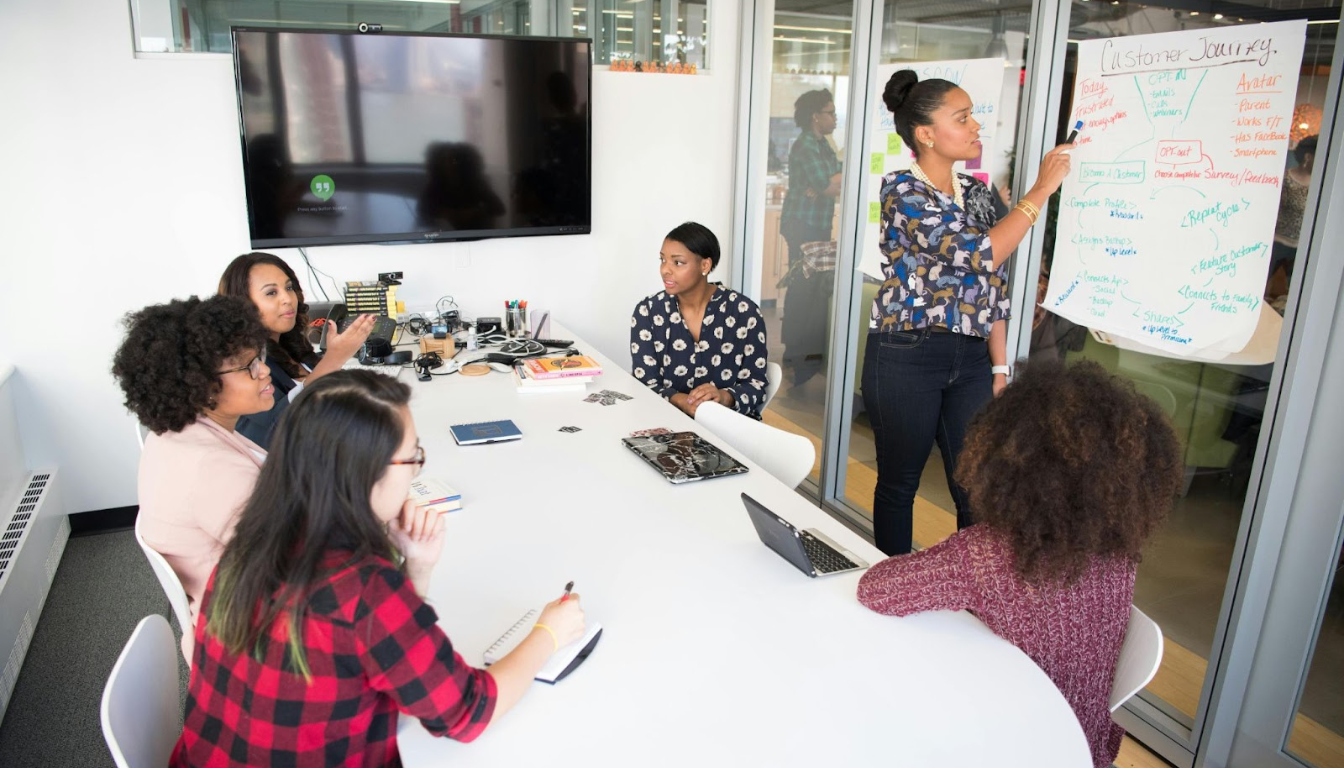Why Is Teamwork Important? 9 Compelling Reasons for Every Workplace

Why is teamwork important? Teamwork boosts productivity, fosters innovation, and creates a positive work environment. It addresses challenges more effectively and promotes personal growth. This article explores 9 reasons why teamwork is essential in any workplace.
Key Takeaways
- Teamwork fosters a positive work environment that enhances communication, innovation, and problem-solving capabilities.
- Collaboration promotes personal growth and job satisfaction while reducing stress and burnout among team members.
- Clearly defined roles and effective communication within teams lead to increased productivity and overall organizational efficiency.
Understanding the Importance of Teamwork

Teamwork is more than just a buzzword; it is the essence of a thriving workplace. When team members collaborate effectively, it promotes a positive work environment, helping overcome obstacles and complete complex tasks faster. This collaborative effort not only improves processes but also satisfies demands and establishes healthier organizations. Teamwork makes a significant difference in achieving these goals.
The benefits of teamwork extend beyond immediate results. Improved communication, shared responsibility, and increased innovation are just a few of the long-term advantages. When team members feel heard and empowered, they are more likely to contribute innovative ideas, leading to greater overall team performance.
A positive company culture attracts talented individuals and enhances overall workplace dynamics. Encouraging teamwork within this culture ensures that team members understand their roles and responsibilities, fostering a sense of belonging and purpose. This approach not only improves teamwork skills but also contributes to achieving collective goals.
In essence, teamwork brings a multitude of benefits that can transform any workplace into a hub of innovation and efficiency. To promote teamwork ensures that teams become high-performing, deeply engaged, and satisfied with their work.
Enhanced Problem Solving
One of the most significant benefits of teamwork is its ability to enhance problem-solving capabilities. When a team works together, it:
- Leverages diverse skills and knowledge
- Leads to more innovative solutions
- Finds creative solutions more effectively than homogenous teams due to varied perspectives.
Collaboration in teams allows for the development of high-quality outcomes in less time due to continuous communication and support. Promptly addressing questions and decisions improves the overall decision-making process in an effective team. Collaborative efforts result in fewer mistakes and generate more innovative solutions.
Moreover, the division of tasks in a team creates a manageable environment for complex projects. This not only enhances problem-solving but also encourages team members to analyze problems from multiple viewpoints, strengthening their decision-making abilities. Strong teamwork is, therefore, a cornerstone of effective problem-solving in any organization.
Boosting Innovation and Creativity

In a world where innovation is key to staying competitive, teamwork plays a crucial role in boosting creativity. Diversity within a team leads to greater creativity and improved performance. When team members look at issues from different perspectives, it creates a 360-degree picture and an exponential increase in ideas.
Brainstorming sessions in a team setting generates more new ideas and enhances their quality. A supportive environment that encourages open communication and idea sharing is vital for fostering creativity and can also spark creativity. This environment allows team members to contribute their unique skills and perspectives, leading to shared success in a collaborative effort.
Trust among team members is critical for the success of brainstorming sessions. Not everyone feels safe to take calculated risks and share ideas without fear, which leads to breakthrough innovations. Leveraging unique strengths within the team further fosters honest feedback and innovation.
In conclusion, teamwork is essential for sparking creativity and generating innovative solutions. Promoting a culture of openness and trust helps encourage teamwork and keeps teams at the forefront of innovation.
Promoting Personal Growth and Development
A cooperative team environment is a fertile ground for personal growth and development. Team members learn from each other, enhancing their overall capability. Collaborative environments enable individuals to learn new concepts, strengths, and weaknesses from their peers, aiding both personal and professional development.
Team dynamics often reveal individual strengths and weaknesses, providing opportunities for targeted growth. Interaction and cooperative work in teams contribute to individual members’ learning and improvement. Such an environment supports the growth of individual knowledge, beneficial for future projects.
Moreover, teamwork facilitates the sharing of expertise from diverse fields, promoting knowledge-sharing among members. This not only enhances individual achievements but also improves teamwork skills and complementary skills, making the entire team more skills effective.
Improving Communication Skills
Open and effective dialogue among team members enhances communication within a team. Key elements include:
- Active listening to concerns, which fosters mutual understanding and collaboration.
- Respecting different opinions.
- Encouraging open discussions, which further enhance collaboration and understanding.
Teamwork also facilitates emotional support and informal bonding activities, which improve communication skills. These interactions help build strong working relationships, making it easier for team members to coordinate and collaborate on tasks. Improved communication skills are, therefore, one of the key benefits of teamwork in the workplace.
Increasing Employee Engagement

Collaborative teams foster psychological safety, encouraging open idea-sharing and boosting engagement. A supportive atmosphere enhances employees’ emotional connections to their work, leading to higher job satisfaction and commitment. Sharing a sense of purpose enhances team members’ motivation and commitment to success.
Acknowledging each member’s efforts strengthens team dynamics and boosts engagement among new team members, giving team members reciprocal trust in a team that requires other team members to rely on each other, strengthening connections. Implementing low-intensity teamwork activities, like coffee breaks, can help reduce burnout by creating space for relaxation and peer support.
Company-wide events and team-building activities promote collaboration and help establish relationships across departments. This holistic approach to encouraging teamwork ensures that employee engagement remains high, ultimately leading to better team performance and job satisfaction.
Enhancing Job Satisfaction
Teamwork instills a sense of responsibility, motivating individuals to grow their skills and contribute more effectively. Effective teamwork boosts employee morale and improves emotional well-being. A supportive network within the team can elevate employee morale and job satisfaction, creating a positive work environment.
Employees who feel understood and valued are more likely to remain committed to their tasks and the organization. Emotional intelligence among team members significantly enhances both collaboration and communication. A sense of community and togetherness in the workplace is crucial for job satisfaction and overall happiness.
Happiness and job satisfaction enhance productivity, making teamwork a win-win for both employees and employers. Fostering a supportive and collaborative team environment enhances job satisfaction and employee retention.
Reducing Burnout and Stress
Collaboration-focused team interactions lower stress levels, leading to higher morale and job satisfaction. Teamwork helps reduce stress by:
- Fostering trust
- Evolving relationships into friendships
- Providing a support network In a team, shared responsibility reduces the pressure on individuals, making tasks more manageable.
Teamwork reduces burnout by dispersing responsibilities and providing mutual support. Team members can help each other regarding burnout by picking up a task or recommending a break. Effective teamwork reduces stress, improving decision-making and overall well-being.
In essence, successful teamwork encourages teamwork as a powerful tool for reducing burnout and stress, ensuring that employees remain engaged, productive, and happy in their roles, highlighting the importance of a successful team and good teamwork.
Building Stronger Relationships

Teamwork strengthens work relationships through:
- Mutual respect and active listening
- Transparent communication and support, which build workplace trust
- Trust that fosters meaningful social interactions among team members, creating a sense of belonging.
Teamwork helps eliminate toxic work culture and builds friendships, enhancing workplace relationships. A supportive group of peers in a team environment establishes resilience among team members, positively impacting performance. Strong teamwork, therefore, leads to better working relationships and a more cohesive work environment.
Achieving Higher Productivity

Clearly defined roles within a team lead to better cooperation and productivity. When tasks are divided fairly and effectively among team members, it enhances satisfaction and overall team output. Effective communication ensures role clarity and understanding of team goals, reducing confusion and boosting efficiency. It is essential to assign tasks appropriately to maximize team effectiveness.
Teamwork offers several benefits, including teamwork benefits such as:
- Boosts communication
- Enhances company culture
- Utilizes resources effectively
- Manages problems swiftly
Collaborative efforts in teams enhance the ability to generate innovative ideas and solutions. Recent research shows this approach not only boosts organizational efficiency but also ensures that the team achieves higher productivity.
By fostering a team environment where roles are clear and communication is effective, organizations can significantly enhance their productivity and achieve their organizational goals, leading to high performing teams that facilitate teamwork.
Summary
Teamwork is the cornerstone of a successful workplace. From enhanced problem-solving and boosting innovation to promoting personal growth and reducing stress, the benefits are manifold. Effective teamwork leads to improved communication, higher employee engagement, increased job satisfaction, and stronger relationships. For organizations aiming to further enhance team cohesion and morale, platforms such as Offsite offer comprehensive solutions for planning and executing customized team-building retreats and offsite events. By managing logistics and tailoring experiences to align with specific organizational goals, Offsite assists in cultivating stronger interpersonal connections and a more unified team dynamic
By embracing the principles of teamwork, organizations can create a vibrant, productive, and innovative work environment. Remember, teamwork makes the dream work. So encourage collaboration, foster a supportive culture, and watch your team soar to new heights.
FAQs
- How does teamwork enhance problem-solving?
Teamwork enhances problem-solving by combining diverse skills and perspectives, which fosters innovative solutions and accelerates the resolution process. Embracing collaboration allows teams to tackle challenges more effectively.
- What role does trust play in fostering innovation within teams?
Trust is essential for fostering innovation within teams, as it encourages open communication and the free exchange of ideas, ultimately leading to breakthrough innovations. When team members feel safe to share their thoughts, creativity flourishes.
- How does teamwork contribute to reducing burnout?
Teamwork effectively reduces burnout by distributing responsibilities and offering emotional support among team members, creating a more balanced and collaborative work environment. This collective effort helps to alleviate individual stress and improve overall well-being.
- What impact does teamwork have on employee engagement?
Teamwork significantly enhances employee engagement by fostering psychological safety and emotional connections, leading to increased motivation and commitment to the team's success.
You may also like
Unique spaces for your next offsite
Find distinctive venues for your upcoming corporate retreat.
Stay Updated with Our Insights
Get exclusive content and valuable updates directly to you.







